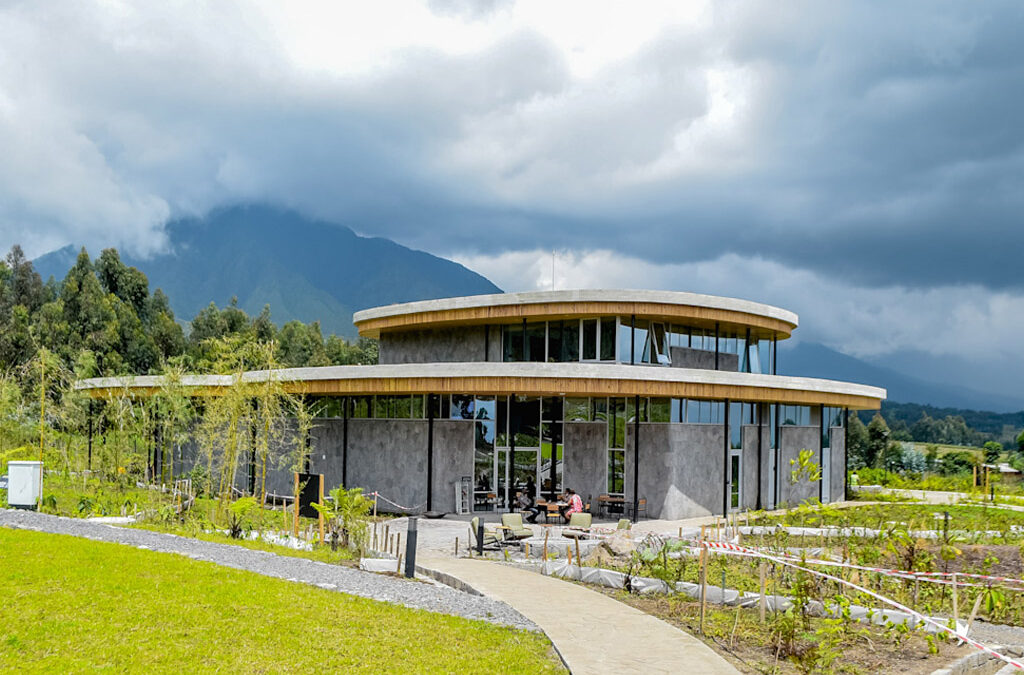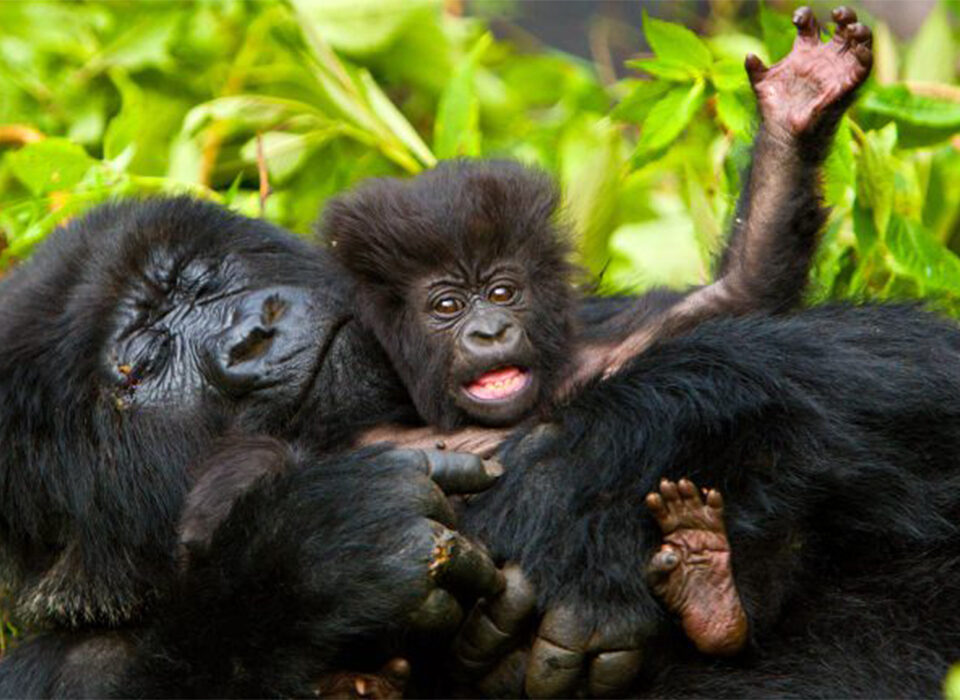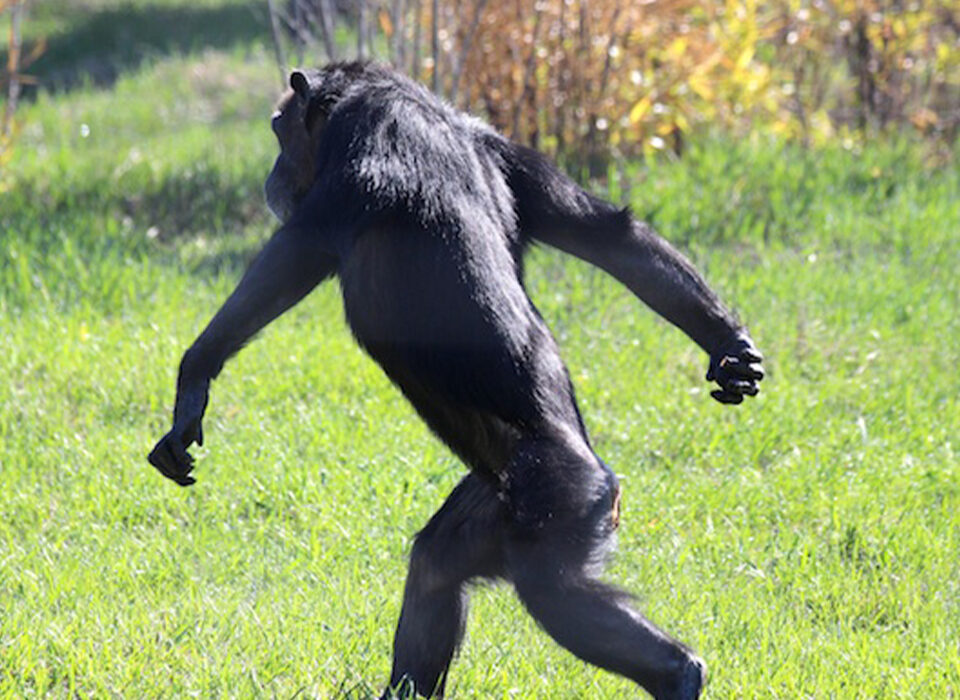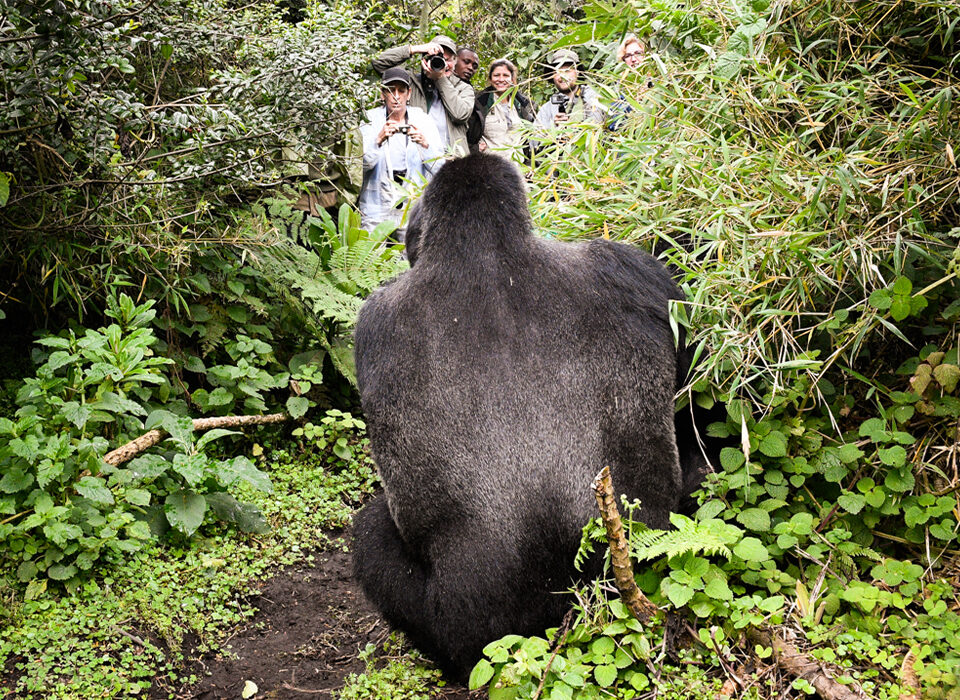
A Safari in Akagera National Park Rwanda – Attractions and Things to Do
September 13, 2025
Frequently Asked Questions about Chimpanzee Tracking in Uganda and Rwanda
September 15, 2025The Ellen DeGeneres Campus for Gorilla Conservation

A New Era in Primate Protection
Conservation is not transformed by sentiment alone. It requires action, funding, permanent structures, and strong field systems to turn ideals into reality. The Ellen DeGeneres Campus in Rwanda stands as a powerful example of how vision and commitment can be translated into long-term solutions for wildlife. Opened in 2022, this modern conservation hub represents a shift from temporary field stations to lasting ecological infrastructure. Today, it is the largest facility of its kind in Africa dedicated to the protection of mountain gorillas.
Purpose and Vision
The campus was established to strengthen regional capacity, promote long-term research, and sustain one of Africa’s most successful conservation efforts. Its strategic location near Volcanoes National Park allows real-time collaboration with rangers and trackers who monitor gorilla families daily. This proximity also benefits students, who can combine academic theory with direct field observation—an invaluable blend of knowledge and practice.
History and Development
Planning for the campus began in 2017, after an assessment revealed that earlier facilities had become inadequate for advanced ecological monitoring and education. International support soon followed, leading to land allocation in Kinigi. Construction began in 2019 under the guidance of conservation-oriented architects and involved more than 2,000 local workers. Despite challenges posed by the global pandemic, the project was completed on schedule and officially inaugurated in February 2022. Since then, it has replaced the older field offices and now functions as the central hub for research, education, and ecological protection.
Facilities and Operations
Designed for efficiency, the campus operates with independent power and internet systems. It houses secure data storage facilities, transport services, and logistics support. More than 90 staff members—including ecologists, veterinarians, educators, and logistics officers—work here full time. Visiting researchers and students also benefit from on-site accommodation.
Every morning, tracking teams gather at the field coordination unit to receive assignments ranging from observing gorilla families to inspecting forest boundaries. Data collected during these missions is processed at the research labs, where it is analyzed and integrated into monitoring systems that track gorilla health and population trends. A central control room coordinates responses in real time, especially in cases such as unusual gorilla behavior or signs of poaching.
Training and Academic Outreach
The campus actively partners with local institutions to train students in ecology, biology, and environmental science. Learning takes place through fieldwork, classroom sessions, and laboratory research. Each year, around 150 students—mostly from Rwanda but also from around the world—benefit from this hands-on training. This investment ensures the growth of a new generation of conservation leaders.
Contributions to Gorilla Conservation
Applied Research
Researchers study gorilla behavior, reproductive patterns, habitat conditions, and stress indicators. Their findings are shared with government bodies, conservation agencies, and academic institutions, contributing to both national and international knowledge.
Gorilla Monitoring
The campus coordinates daily monitoring of gorilla groups. Data on movements and health is compiled and logged into databases that inform conservation strategies and guide future planning.
Veterinary Support
The facility works closely with specialized veterinarians who provide medical care to gorillas in the wild. Laboratory services on-site allow quick diagnosis of samples, reducing the need to send material abroad. This ensures faster responses to health issues while also strengthening regional veterinary capacity.
Visiting the Campus
Visitor Experience
The campus welcomes visitors, but access is carefully regulated to keep conservation activities at the forefront. Tourists, students, and local groups are hosted at the Interpretive Centre, where they learn about gorilla ecology, the history of conservation, and the legacy of pioneers who dedicated their lives to protecting primates. Visitors can also view archival footage, interactive exhibits, and scientific data visualizations.
Entrance and Access
There is no entrance fee for visiting, although donations are encouraged to support ongoing projects. Advance booking is essential, as walk-in visits are not always possible. Academic outreach programs are also offered, including remote learning opportunities for those unable to travel.
Distance from Kigali
The campus is located in Kinigi, within Rwanda’s Northern Province. From Kigali International Airport, the journey takes around three hours by car along a paved and well-maintained road. This makes it an accessible stop for travelers before or after gorilla trekking adventures in Volcanoes National Park.
A Lasting Legacy
The Ellen DeGeneres Campus is more than just a conservation center—it is a living legacy of action, collaboration, and hope. By training students, supporting rangers, advancing research, and protecting gorillas, it ensures that Africa’s most iconic primates have a safer future. It is not only a place of science and learning but also a symbol of what can be achieved when vision meets commitment.



